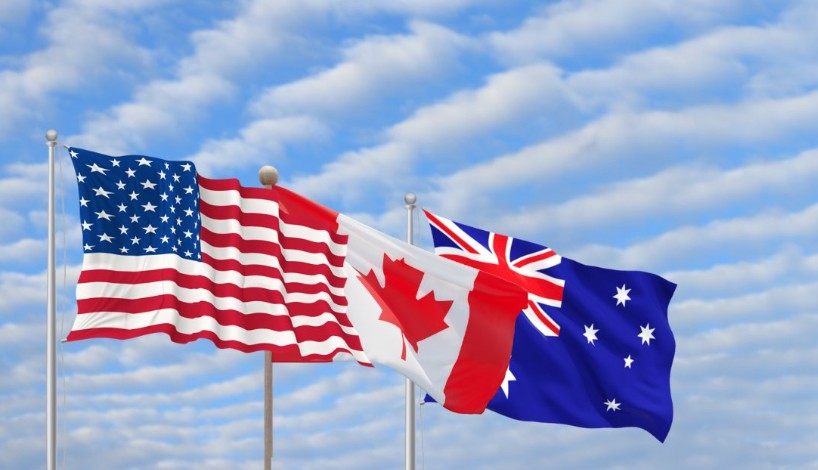
Visa exemptions for certain nationalities rei...
read more
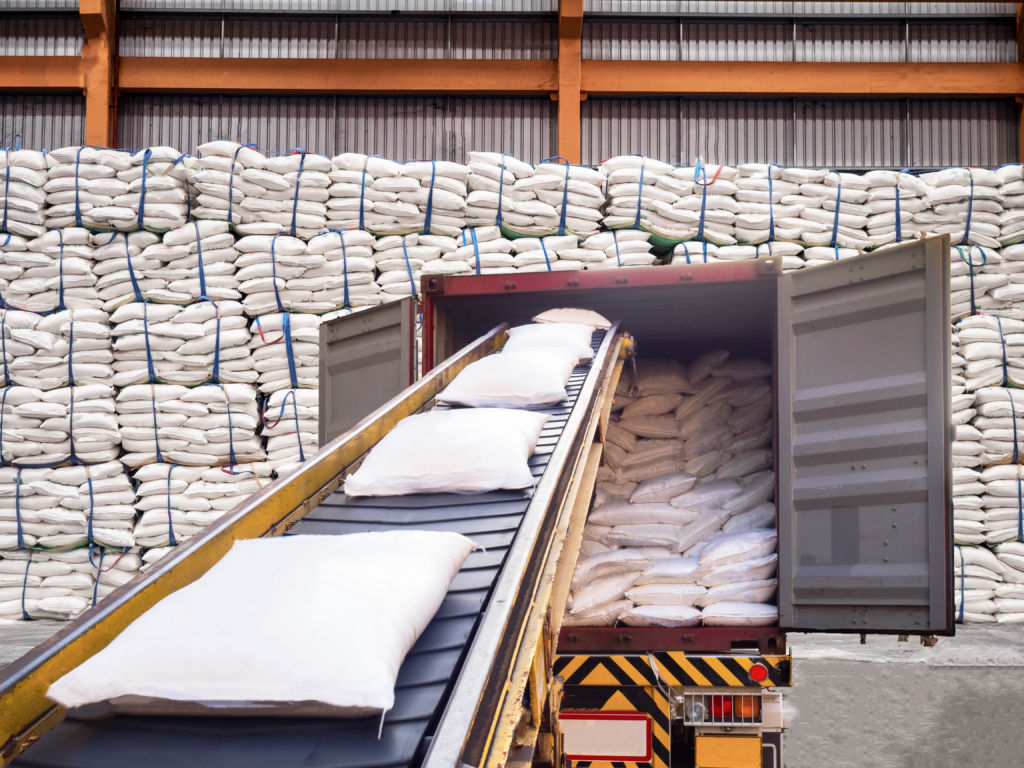
The global shortage of containers and port congestions drive bagged sugar back to bulk carriers
Over the last decade, an average of 22 million tonnes (mmt) of sugar was shipped abroad through Brazilian ports every year, leaving the sugarcane derivative only behind soya bean in terms of quantities of agriproducts exported during that period.
Traditionally, over 90% of Brazilian sugar exports are made up of raw sugar in bulk, with the port of Santos handling about three-quarters of the volume shipped. Only a marginal amount of very high polarisation raw sugar (VHP/VVHP) is carried in bags.

Refined white sugar packed in 50-kg bags represents less than 5% of sugar shipments out of Brazil. The Paranaguá-Antonina port complex, followed by Recife and São Sebastião, handled the most significant bagged sugar volumes in recent years.
The National Waterway Transport Agency (ANTAQ) reported that 2020 sugar exported by Brazil reached nearly 29 mmt, a port handling and export world record for the commodity. About 1.4 mmt of the volume exported comprised white sugar in bags, transported mainly in 20′ containers, with a smaller fraction carried as general cargo.
Since COVID-19 hit the world and heated demand for consumer supplies, unbalancing the availability of boxes, causing port congestions and hiking freight rates, increasing volumes of refined sugar in bags, which were usually carried in shipping containers, are being shipped out of Brazil as breakbulk in bulk carriers. This method used to be the norm in traditional ports, such as Santos and Paranaguá, until the turn of this century, when the first terminals specialised in the handling of sugar were built – and eventually replaced shipments of sugar in bags with sugar in bulk, making loading operations much faster and efficient.
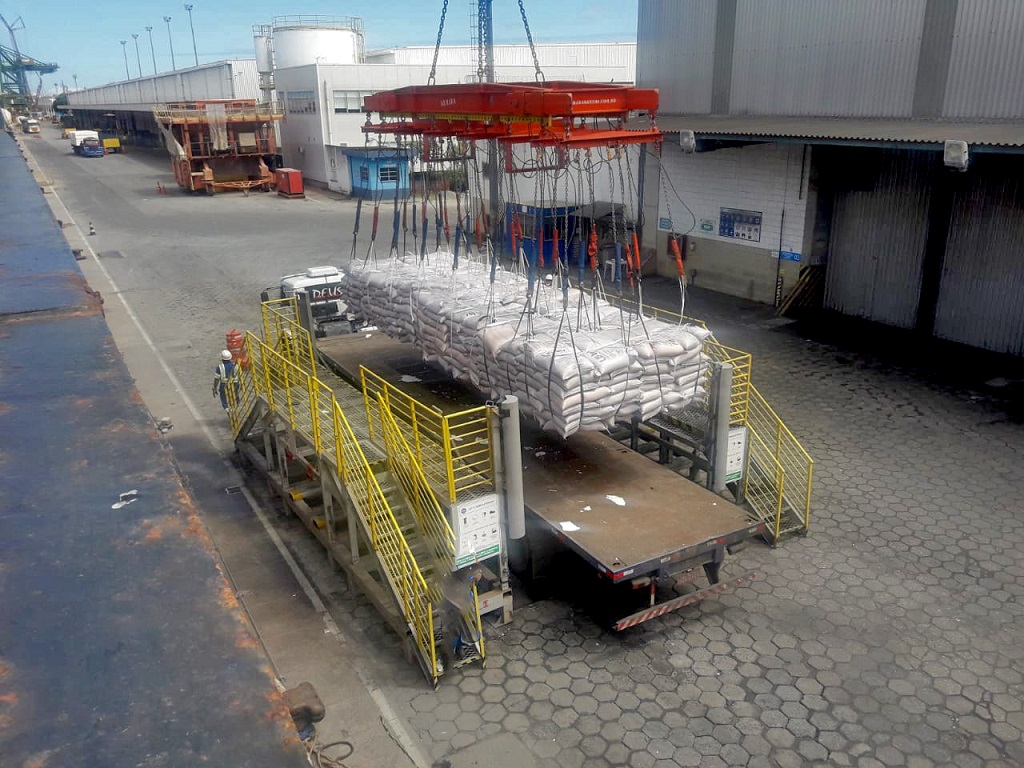
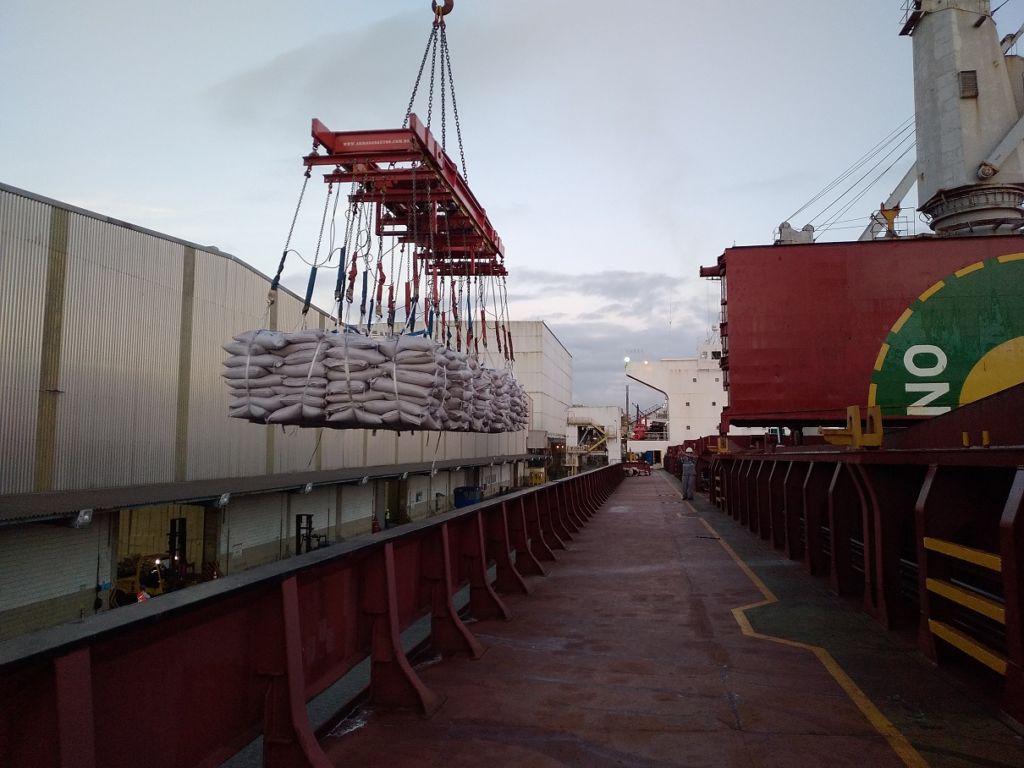

There are no official statistics on the number of bagged sugar shipments that have migrated from containers to bulk carriers. Nevertheless, preliminary data indicate that more than 10% of the volume was switched to the breakbulk trade during the pandemic. In fact, market experts believe that volumes of sugar in bags transported as general cargo, loose or pre-slung, could be even higher were it not for the scarcity of small-sized bulkers to meet immediate demand in the refined sugar market.
While freight rates for bagged sugar shipments as breakbulks are generally cheaper than in containers, the loading rate is much slower and highly dependent on favourable weather conditions and increased labour. In addition, bagged sugar carried in bulk carriers is more prone to handling damage and exposure to the elements than that packed in containers.
The National Supply Company (CONAB) estimates that, in the 2020/21 season, Brazil will have sold sugar to more than 140 countries, with shipments to Asian and African ports standing out. China was the leading destination last season. Other important buyers of Brazilian sugar were Algeria, Bangladesh, Indonesia, and India.
CONAB predicts that, due to adverse weather during the sugarcane cycle for the next harvest, productivity will drop significantly in key producing states, such as São Paulo, Mato Grosso and Paraná. Despite this, the federal agency estimates that production and exports will continue upward, influenced by a favourable exchange rate and a rise in sugar prices since the outset of the pandemic.

In the same direction, the United States Department of Agriculture (USDA) forecasts that Brazilian sugar will remain highly competitive in the global market, regardless of considerably lower output compared to last year’s record. The USDA estimates sugar production for the 2021/22 marketing year to reach 36 mmt, down six million tonnes from the past season. About 26 mmt of this volume is destined for export, which should comfortably keep Brazil as the world’s top sugar producer and exporter for another season.
Bagged sugar is susceptible to caking and stickiness, typically associated with high temperature and moisture content at bagging, as well as handling damage in the forms of tears and cuts that cause cargo wastage. Sugar bags can be very slippery, and care must be taken when stacking them on board the vessel to avoid collapse of stow and personal injury.

Under the standard Sugar Charter Party, the Master is responsible for rejecting bags that would otherwise involve the clausing of mate’s receipts and bills of lading. The carrier remains liable to the cargo owner for delivering the same number of bags as stated in these documents, even though only the shore tally is officially recognised.
There are measures that shipowners and masters can take to avert or minimise the risks associated with loading this sweet commodity from Brazil. Our recent practical guide provides detailed information on raw and bagged sugar production, grading, loading, and stowage and practical advice on loss prevention opportunities. The guide can be downloaded for free here.
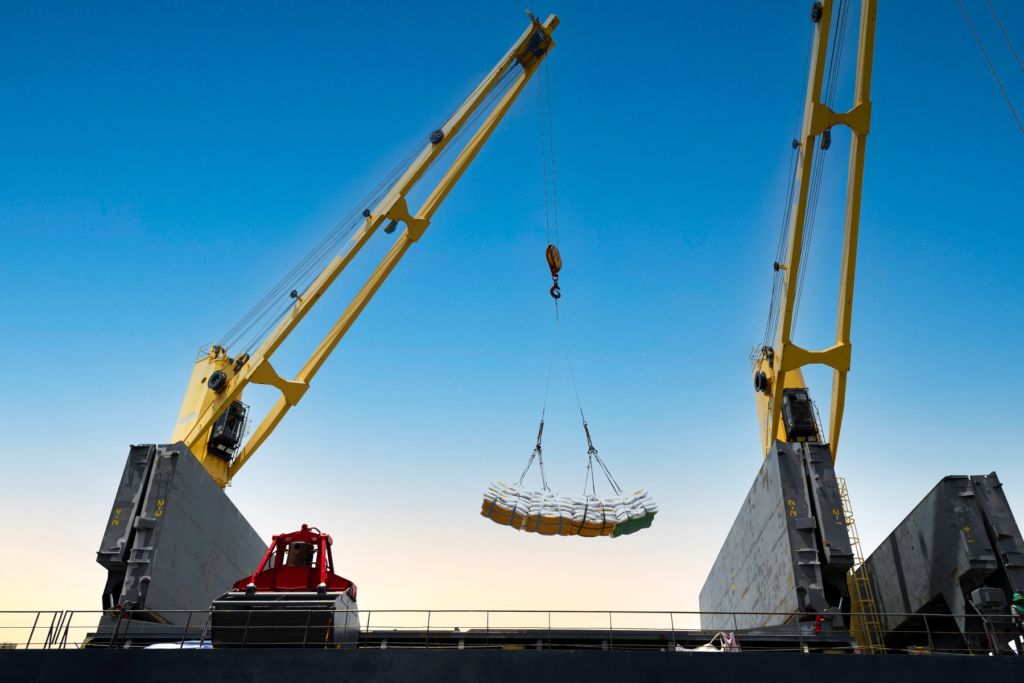
Please read our disclaimer.
Related topics:
Rua Barão de Cotegipe, 443 - Sala 610 - 96200-290 - Rio Grande/RS - Brazil
Telephone +55 53 3233 1500
proinde.riogrande@proinde.com.br
Rua Itororó, 3 - 3rd floor
11010-071 - Santos, SP - Brazil
Telephone +55 13 4009 9550
proinde@proinde.com.br
Av. Rio Branco, 45 - sala 2402
20090-003 - Rio de Janeiro, RJ - Brazil
Telephone +55 21 2253 6145
proinde.rio@proinde.com.br
Rua Professor Elpidio Pimentel, 320 sala 401 - 29065-060 – Vitoria, ES – Brazil
Telephone: +55 27 3337 1178
proinde.vitoria@proinde.com.br
Rua Miguel Calmon, 19 - sala 702 - 40015-010 – Salvador, BA – Brazil
Telephone: +55 71 3242 3384
proinde.salvador@proinde.com.br
Av. Visconde de Jequitinhonha, 209 - sala 402 - 51021-190 - Recife, PE - Brazil
Telephone +55 81 3328 6414
proinde.recife@proinde.com.br
Rua Osvaldo Cruz, 01, Sala 1408
60125-150 – Fortaleza-CE – Brazil
Telephone +55 85 3099 4068
proinde.fortaleza@proinde.com.br
Tv. Joaquim Furtado, Quadra 314, Lote 01, Sala 206 - 68447-000 – Barcarena, PA – Brazil
Telephone +55 91 99393 4252
proinde.belem@proinde.com.br
Av. Dr. Theomario Pinto da Costa, 811 - sala 204 - 69050-055 - Manaus, AM - Brazil
Telephone +55 92 3307-0653
proinde.manaus@proinde.com.br
Rua dos Azulões, Sala 111 - Edifício Office Tower - 65075-060 - São Luis, MA - Brazil
Telephone +55 98 99101-2939
proinde.belem@proinde.com.br